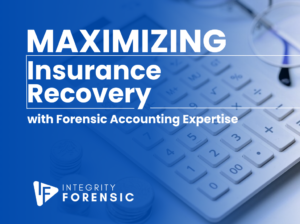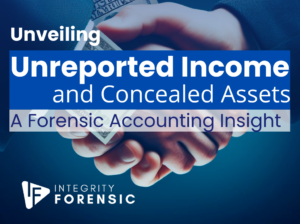The landscape of fraud is constantly evolving, and with the rise of digital advancements, new avenues for fraudulent activities have emerged. Cryptocurrency, the digital form of currency, has gained significant attention in recent years due to its growing popularity and potential misuse. A new study conducted by the Association of Certified Fraud Examiners (ACFE) sheds light on the role of cryptocurrency in fraud schemes. In this article, we will explore the key findings of the study, the risks associated with cryptocurrency use, and the importance of incorporating forensic accounting expertise in addressing this emerging challenge.
The Rise of Cryptocurrency
Cryptocurrency, such as Bitcoin and stablecoin, has become increasingly accepted as a form of payment by individuals and businesses alike. Its digital nature and decentralized structure provide convenience and flexibility for transactions. However, the anonymous nature of cryptocurrency transactions has raised concerns, as it can be exploited by criminals seeking to evade detection and regulations. Despite these challenges, a recent survey revealed that one in five Americans has invested in or used cryptocurrency, indicating its widespread adoption and potential impact.
Insights from the ACFE Study
In its latest report, the ACFE’s “Occupational Fraud 2022: A Report to the Nations” for the first time addresses the prevalence of cryptocurrency in fraud schemes. The study uncovered that 8% of fraud cases involved cryptocurrency. This finding suggests that as more businesses engage in cryptocurrency transactions, the likelihood of encountering fraud related to crypto will increase. The allure of reduced transaction fees and exchange rate risks in international dealings can make cryptocurrency an attractive option for businesses. However, this comes with inherent risks that must be addressed.
Understanding Crypto-Related Fraud
The ACFE study highlighted two primary ways in which cryptocurrency is used for fraudulent purposes. Firstly, it is employed for bribery and kickback payments, accounting for 48% of cases. Cryptocurrency’s anonymity provides fraudsters with a convenient tool to facilitate illegal transactions while evading detection. Secondly, 43% of cases involved the conversion of stolen assets into cryptocurrency. The ease of transferring and storing digital currency allows fraudsters to conceal their illicit gains. Additionally, some fraudsters manipulate financial statements by misrepresenting cryptocurrency assets, taking advantage of the general public’s limited understanding of how cryptocurrency functions.
Navigating the Risks
Given the increasing prevalence of cryptocurrency in fraud schemes, it is essential for businesses to adopt proactive measures to protect themselves. While some may be hesitant to engage in cryptocurrency transactions due to its volatile nature, external pressures from supply chain partners, contractors, and employees may compel businesses to explore this avenue. This is where the expertise of forensic accountants becomes invaluable.
The Role of Forensic Accountants
Forensic accounting professionals play a critical role in helping businesses navigate the complexities of cryptocurrency transactions. They can conduct comprehensive risk assessments, identify vulnerabilities, and develop tailored policies and procedures to mitigate fraud risks. By leveraging their expertise, forensic accountants can guide businesses through the secure integration of cryptocurrency, ensuring compliance with regulations and minimizing the potential for fraudulent activities.
The ACFE study’s findings highlight the increasing presence of cryptocurrency in fraud schemes, underscoring the need for proactive measures to protect businesses from potential risks. While the allure of cryptocurrency’s benefits in international transactions may be tempting, understanding the associated fraud risks is crucial. By collaborating with forensic accounting experts, businesses can fortify their defenses, develop robust policies and procedures, and educate their personnel on the intricacies of cryptocurrency. Together, we can navigate this evolving landscape, safeguard businesses, and maintain the integrity of financial systems.
At Integrity Forensic, we have a team of experienced forensic accountants to assist you. Call now for a free consultation: 855-673-9999 or send us a message at questions@integrityforensic.com.
Sources:
Association of Certified Fraud Examiners (ACFE): “Occupational Fraud 2022: A Report to the Nations”
Cryptocurrency: Definition, History, Types, and Legalities (Investopedia)
Cryptocurrency Fraud: Red Flags and Investigation Techniques (ACFE)





